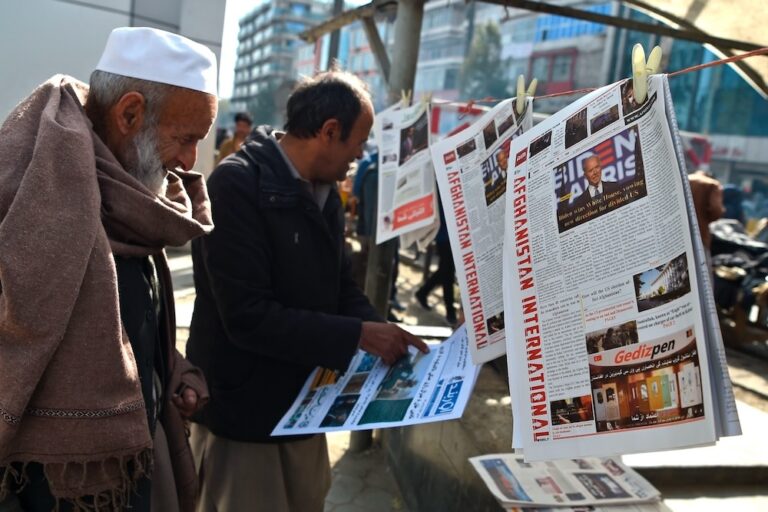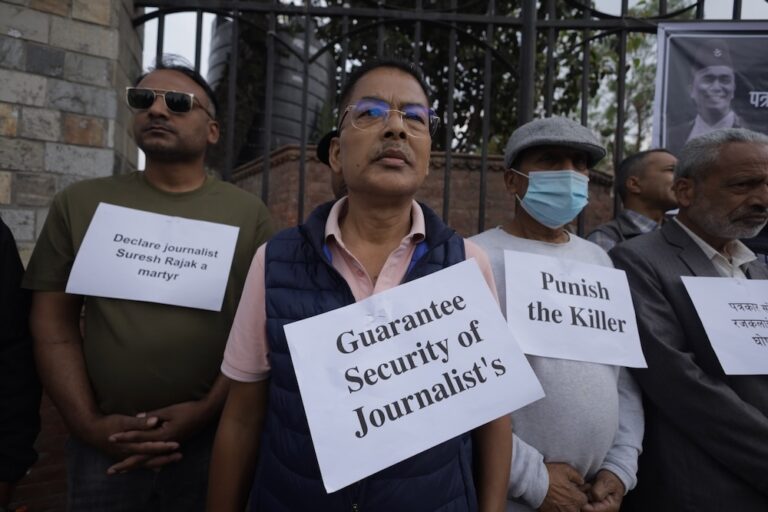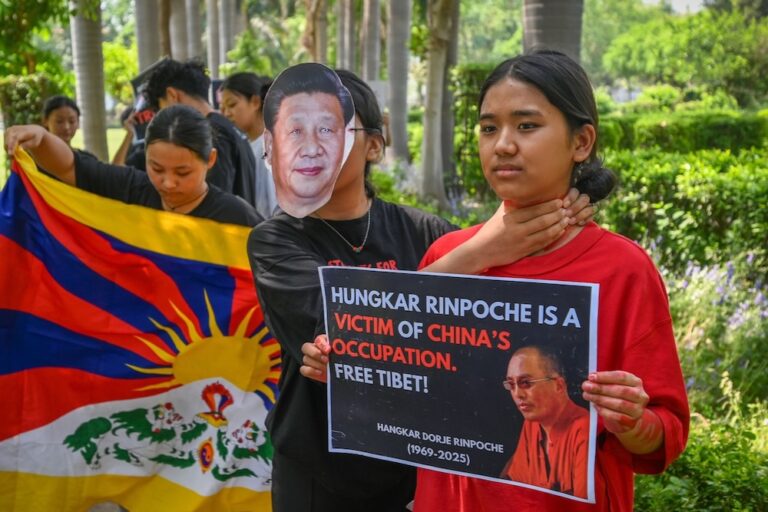Facebook takedowns, digital rights in Nepal, attacks on the media, Tiananmen censorship, a landmark act in Sri Lanka and much more in this month's regional round-up.
Philippines President Rodrigo Duterte made international headlines in late May 2016, just weeks after he won the national elections, when he said that most journalists who were killed in the country were corrupt. Coming from a country that has seen among the highest numbers of journalists killed in the world, the statement shocked many in the local media and global free expression community who have been campaigning for years to end impunity in such killings.
In an immediate response to the statement made at a press conference in Davao City on 31 May, the National Union of Journalists of the Philippines said they were appalled by the statement. They said Duterte (sworn in officially on 30 June) had not only sullied the names of all the journalists killed in the line of duty since 1986, but that it was effectively an open call to silence the media.
The Center for Media Freedom and Responsibility echoed those sentiments and said a study they conducted in 2006 showed that an overwhelming number of the 152 killed were in fact exposing corruption and criminal syndicates in the communities. CMFR noted that they have always been critical of unethical or unprofessional reporting, but were uncompromising when it came to the threat of violence against media workers.
In a display of solidarity and in defence of the profession, news organizations, student publications and citizen advocates across the country published a common editorial criticizing the President for his harsh attitude towards the media, reminding him of his obligations as leader of the nation, which includes honoring the rights of the public and the media to exercise their freedom of speech and expression.
Two UN experts called on Duterte to “stop instigating deadly violence”, with the Special Rapporteur on summary executions Cristof Heys saying that the statement “amounts to incitement to violence and killing, in a nation already ranked as the second-deadliest country for journalists.” The Committee to Protect Journalists, which monitors the safety of journalists, ranked Philippines the fourth worst in the global impunity index for 2015.
Parallel to this confrontation was another form of censorship of political expression, especially those critical of Duterte and other personalities. According to CMFR, social media giant Facebook deleted the post of a veteran journalist, Ed Lingao, and took down the account of Economic Journalists Association of the Philippines (EJAP) for allegedly violating its standards and policy. Lingao’s post and follow up comments were critical of Duterte’s statement that he would allow the burial of the late dictator Ferdinand Marcos at the Heroes’ Cemetry. EJAP had criticized the President’s comments justifying the murder of journalists.
Facebook issued an apology over its take down of some of the pages. Concerns have been raised that the company is censoring legitimate political discussions and freedom of expression. CMFR suggested that supporters of Duterte and Marcos may have “flexed their collective muscle – and Facebook took notice.”
Similar cases were also noted elsewhere. In February, a Facebook user in Indonesia had her account suspended after she posted a series of historical photos of local women, based on complaints of ‘nudity’ and ‘explicit content’. Twenty-three year-old Dea Basuri’s posts, which showed Indonesian women in traditional attire with their breasts exposed, were in response to what she claimed was unreasonable censorship by television stations in the country. The TV stations had reportedly blurred the legs and cleavage of contestants of the Puteri Indonesia 2016 beauty pageant.
In France, journalist David Thomson who covers jihadism for several media outlets including radio RFI, had his Facebook account temporarily suspended on 20 June, according to the Mapping Media Freedom project covering Europe. Thomson’s account was deactivated three times without warning since 2014, believed to be over his reportage on ISIS.
Impunity and attacks
Attacks against the media and journalists were recorded in Afghanistan, Sri Lanka and India. In Afghanistan, two staff of the US public broadcaster NPR were killed on 5 June while traveling in a military convoy in southern Afghanistan. The two are photographer David Gilkey and Afghan interpreter Zabihullah Tamanna.
On 8 June, a local private radio station in the capital of Eastern Nangarhar was hit by a grenade attack by unidentified men. Local and international groups condemned the killings and attacks, as Afghanistan remains a dangerous place for journalists. Other journalists tweeted their responses following the incident:
Your news does not come for free — two NPR journalists, one American and one Afghan killed in an ambush in Afghanistan’s Helmand.
— sayed salahuddin (@sayedsalahuddin) June 6, 2016
Sad to hear about Zabi Tamanna. He’s v. nice & helpful guy. He used to come to dpa office in Kabul /w @sabawoon2000: https://t.co/Nok5X96Ybx
— Subel (@svbel) June 6, 2016
In Sri Lanka, the Free Media Movement and the CPJ called for investigations into the attack of Freddy Gamage, an editor of the Sinhala-language newspaper, Meepura, on 3 June. Significant in this case was the government issuing a statement condemning the attack of Gamage, well-known for his reporting on crime and corruption.
In India, party members of the Bharatiya Janata Party (BJP) attacked several journalists in Palakkad, in the southern state of Kerala on 14 June, as they were covering a court case involving BJP workers. It was reported that the journalists were manhandled and the attackers damaged their cameras. The International Federation of Journalists (IFJ) expressed concern over the rising number of attacks against journalists in India over the past year.
The international media kept its focus on the rapidly declining situation in Bangladesh, where bloggers, academics and activists are being targeted for their secular and political views. A New York Times report said the authorities claimed to have identified those behind the murder of bloggers – two militant Islamic groups – and details of their operations. The Observer editorial, published in The Guardian on 12 June, said the range of targets by assailants claiming to champion religious rights, was growing and violence committed with impunity and possibly, collusion with the authorities. At stake was Bangladesh’s tradition of cultural diversity, religious tolerance and secular governance.
Digital rights
In Nepal, advocates of freedom of expression questioned the government’s Online Media Operation Directive 2016, which was released on 14 June. They claimed the procedures and requirements threatened to undermine press freedom and freedom of expression. Among others, the directives allow the government to disrupt services of online news sites based on arbitrary decisions of the Department of Information, and order the blocking of websites that fail to register or publish content considered immoral or ‘without authoritative source or creating misconceptions among public.’
The IFJ together with the Federation of Nepali Journalists called for a withdrawal of the directives, while Freedom Forum described the move as “dictatorial” as the government was expected to use the law to clamp down on the online news media that had become popular.
In China, mainstream media and social media faced the censors ahead of the 27-year anniversary of the 4 June Tiananmen massacre. The brutal crackdown remains one of the most controversial topics that has been a regular red flag for online searches and discussions. Media reports said activists were detained ahead of the anniversary and online references were also removed from the internet.
On Twitter, user @Techcrunch noted how the microblogging site, Tumblr was also blocked:
Tumblr blocked in China before Tiananmen Square massacre anniversary https://t.co/NtCluKWiK2 by @catherineshu
— TechCrunch (@TechCrunch) June 2, 2016
Right to Information
In Sri Lanka, lawmakers passed the Right to Information Act (RTI), giving citizens the right to access public information. It has been welcomed as landmark legislation, given that Sri Lanka has a long history of official secrecy. It is now one of the 109 countries with a freedom of information regime.
According to media reports, the bill has been part of a longstanding campaign by journalists and activists; it was first tabled in the 1990s but did not see light of day due to the ongoing conflict. President Maithripala Sirisena who came into office in 2015 pledged to enact the law as part of his reforms package. The public and media were largely prevented from accessing information under the previous administration of Mahinda Rajapaksa; journalists who reported critically on the government regularly faced attacks and impunity killings.
Legal analyst Kishali Pinto-Jayawardena wrote in her column in Sunday Times that the law took two decades to come into fruition as it was challenged by priorities of national security during the war. She suggests that past experiences with dismal use of good laws and conventions should be taken as a challenge to the government and society to ensure that the RTI law is implemented properly.
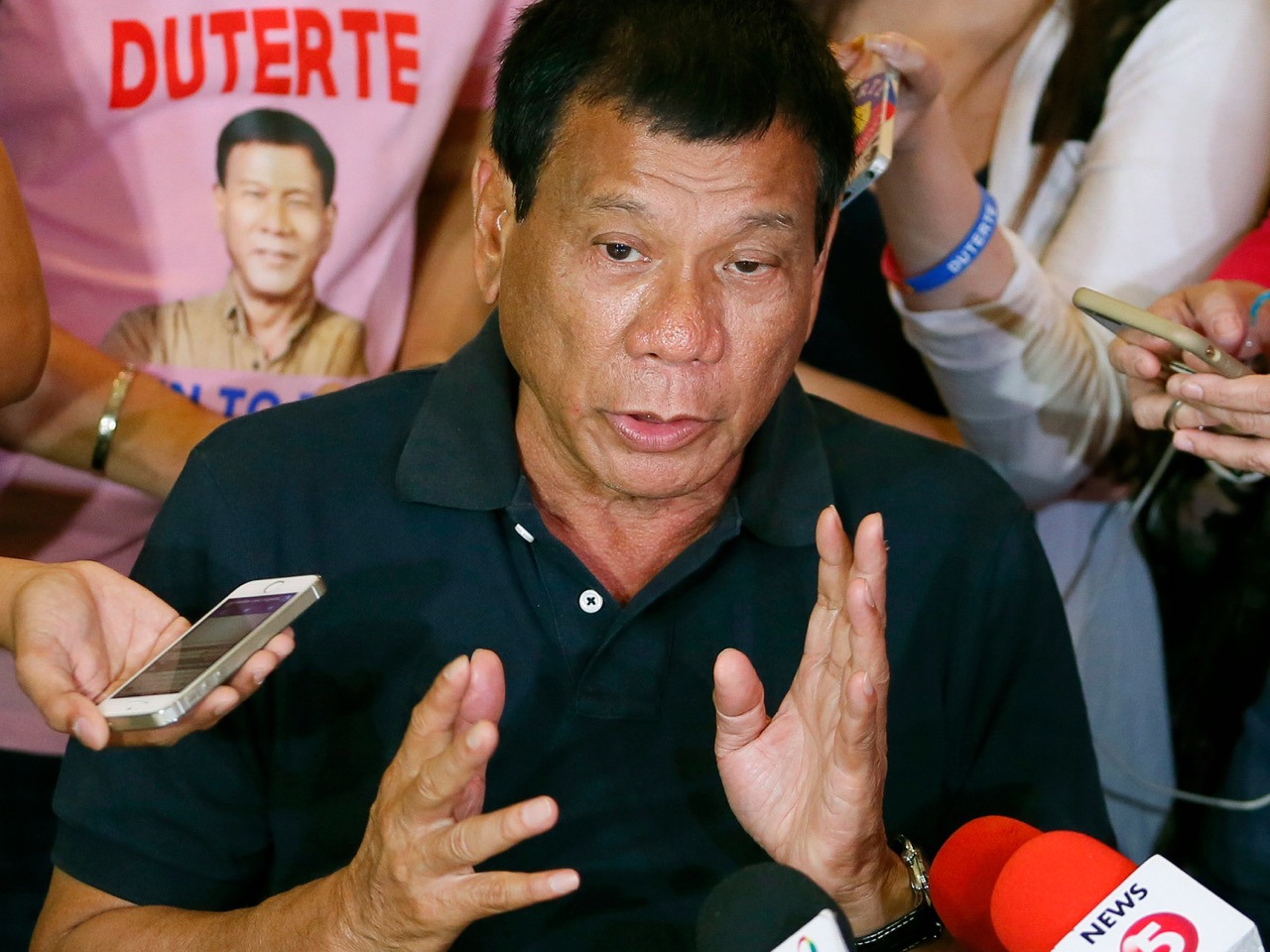
In this 29 April 2016 file photo, then presidential candidate Rodrigo Duterte answers questions from the media in ManilaAP Photo/Bullit Marquez, File
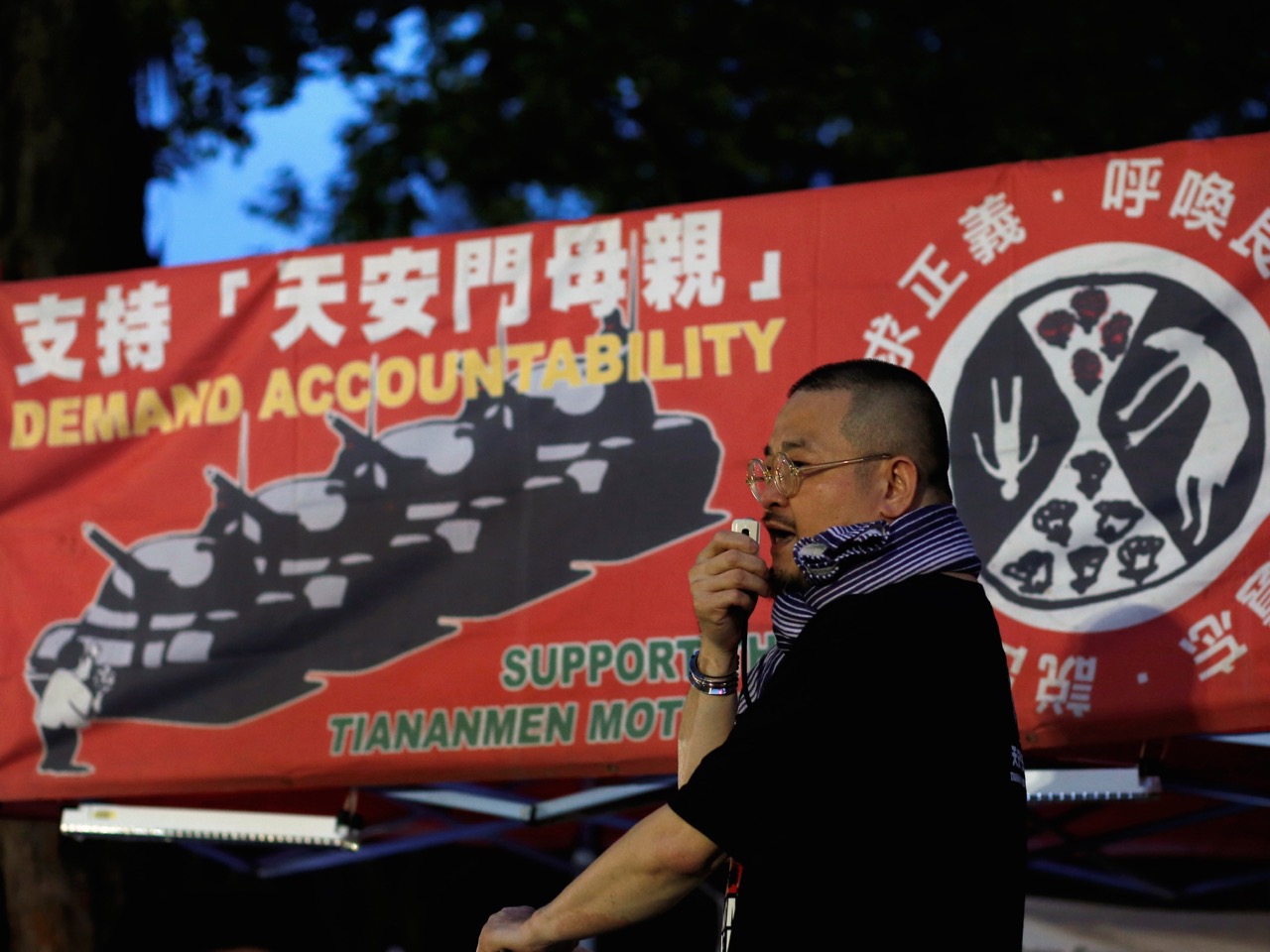
On 4 June 2016, an activist in Hong Kong urges people to join a candlelight vigil to mark the 27th anniversary of the crackdown on a pro-democracy movement at Beijing’s Tiananmen Square in 1989REUTERS/Bobby Yip

